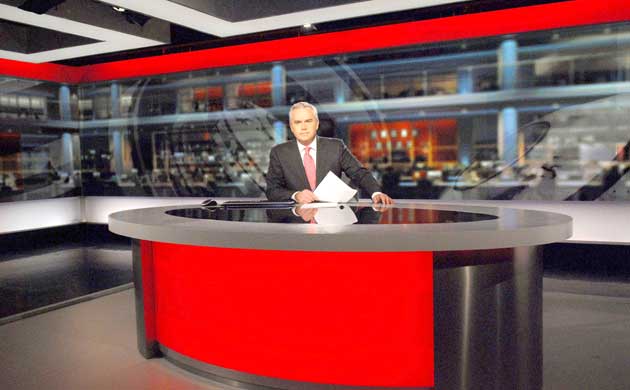This is an issue which has struck me in the last few years, and it is ever present in all walks of life. I’m talking about too much say from too many people in too many areas.
What do I mean by that? Well the continued ‘politically correct’ submission to the lowest common denominator in decision making; be it planning, politics or public service. Why can we not trust the experts in their respective fields? The submission comes as a direct result of a flood of public opinion which is often not aware of even half the facts in any case.
One example is that of the UK’s planning process. Everyone is allowed a say, rightfully, but this process can last months, sometimes years, and then is given arguable too much weight in the final decision. Terminal 5 was one victim of this, and many of the proposed towers in London have been too. Is it right, as the current system dictates, that everyone is allowed a legal opinion on the aesthetics of a structure, or complain about more people moving into an area? These views form part of the planning application and are sometimes  fundamental in whether a building is actually built – and of course it is only those who bare a strong opposing view that actually make the time to submit a comment, resulting in an apparent swathe of negativity. To increase our chances bold and beautiful things to be proud of, instead of being negative in the form of complaints and intervention we should be empowering the people that show an inclination for creating beauty in the first place.
fundamental in whether a building is actually built – and of course it is only those who bare a strong opposing view that actually make the time to submit a comment, resulting in an apparent swathe of negativity. To increase our chances bold and beautiful things to be proud of, instead of being negative in the form of complaints and intervention we should be empowering the people that show an inclination for creating beauty in the first place.
Living or working somewhere does not give us the right to dictate how others may enjoy that same environ. We buy a stake in the land of our homes and the rest is public domain. The current, if misguided, capitalist view is that somehow when you purchase a place to live, you are buying a piece of an area, including its appearance and feel, even though this is constantly changing and generated by the sweat and tears of past generations. Surely we do not suddenly have a right to halt this process and 'purchase' something that is the result not of mass production but of the evolution of civilization?
This problem is not just manifest in planning but also in organisations such as the BBC where everyone seems to want to add their opinion to every problem (presenters pay, Sachsgate, Golliwogs and all sorts of others), instead of leaving those who have studied and gained experience over many years in this specific field to sort out any problems and deal with them appropriately. I understand that it is a publicly owned body, but that does not mean an everyday man in the street knows best any more than they would be best qualified to be the Prime Minister. Besides by doing this we weaken the BBC to the point at which is it scared to broadcast anything remotely daring or risky. That can only be a bad thing as far as I am concerned.
field to sort out any problems and deal with them appropriately. I understand that it is a publicly owned body, but that does not mean an everyday man in the street knows best any more than they would be best qualified to be the Prime Minister. Besides by doing this we weaken the BBC to the point at which is it scared to broadcast anything remotely daring or risky. That can only be a bad thing as far as I am concerned.
Another more recent example is the situation of the Bankers. Yes they messed up, but it is easy to forget the tremendous wealth and prosperity they brought everyone over a period of 30 years. Now everyone thinks they know what to do with them – punish them all, anything from huge fines to execution, with new regulations left, right and centre. Perhaps though, we should stand back, bring the experts around the table, identify the problems calmly, rectify; move on and rebuild the system to its very strongest potential.
I believe our idea of a democratic system needs streamlining. What are our key objectives? In planning, one that would be most important is the long-term investment in beauty. Even though this can mean many things, it doesn’t seem to appear in many people’s arguments, even as a theory. Shouldn’t this actually be a central point in any planning argument? After all that’s what we need a planning department for; we could all put up a jumble of shacks that we could live perfectly well in, if considerably depressed..
Of course this problem only comes about because everything thinks that their view is the correct one. Winston Churchill’s famous quotation sums that one up:
"The best argument against democracy is a five minute conversation with the average voter."
Everyone has their own career path and expertise – perhaps we should concentrate a little more on the area in which we have talent, rather than lambasting other fields.








I would suggest reading some Schumpeter. His book 'Capitalism, Socialism and Democracy' should be right up your street!
The question is not whether democracy has gone too far, but whether the State has gone too far and thus infringed upon our liberty. A state where all decisions are made by majority vote or a state where all decisions are made my "experts" are the same thing - totalitarian. What we actually need is a dose of libertarianism to roll back the state and give individuals more control over threir own lives. We cannot abolish democracy - as Churchill also said "democracy is the worst form of government, except for all the others" - and who decides what constitutes an expert? ("Experts" have been wrong through history, look at 60s architects!). Besides, as MacMillan said, "we have not overthrown the divine right of kings to follow the divine right of experts". Liberty really is the answer.
In your examples this is also the case. Planning should be limited so that it focusses on opposing schemes that detract and devalue other people's property (i.e. protect property rights) and promotes quality, natural materials and such. With the BBC, simply make the License Fee into an optional subscription or fund it through adverts. And the banks - leave them alone. If a bank fails, it fails, don't bail it out with taxpayers money because it's none of our business. Regulation will either be misguided by non experts or deliberately misguided by "experts" to suit themselves.
Liberty solves the democracy vs experts argument.